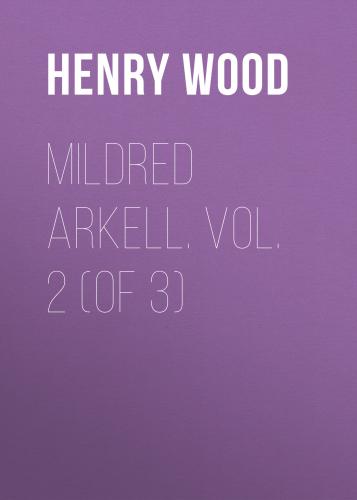"Keep up your spirits, Mrs. Dundyke," he cheeringly said as he shook hands with her at parting. "Depend upon it, your husband will come home, and bring some good reason for his absence; and if it were not that I am compelled—compelled by business—to go on to Genoa, I would not leave you."
She sat down as if some cold shiver had seized upon her heart. It was in her own room that this farewell was spoken; and in that one moment, as he released her hand, and his peculiar eyes rested on her in the parting, and then were lost sight of, it flashed into her mind where she had seen those eyes before. They were the eyes she had once so shrunk from at Westerbury; at least, they bore the same expression—Benjamin Carr's.
Mrs. Dundyke's pulses quickened, and she clasped her hands. For one single moment a doubt arose to her whether Mr. Hardcastle could be Mr. Hardcastle—whether he was not an impostor, Benjamin Carr, or any other, travelling under a false name; and a whole host of trifling incidents, puzzles to her hitherto, arose to her mind as if in confirmation. But the doubt did not last. That he was really anybody but the great Mr. Hardcastle—head, under his uncle, of the great house of Hardcastle and Co.—she did not believe. As to the resemblance in the eyes to those of Benjamin Carr, she concluded it must be accidental; and of Benjamin Carr's features she retained no recollection. She opened the order he had given her to receive the twenty pounds, and found it was signed "B. Hardcastle:" no Christian name in full. Mrs. Dundyke dismissed all doubts from her memory, and continued to believe implicitly in Mr. Hardcastle.
It was, perhaps, a somewhat curious coincidence—at least, you may deem it so, as events go on—that on this same evening an English clergyman should arrive at Geneva, and put up at the hotel. It was the Rev. Wheeler Prattleton, who was visiting Switzerland in pursuance of his intentions (as you once heard mention of), accompanied by his eldest daughter. The strange disappearance of Mr. Dundyke had caused some stir in the hotel, and the clergyman was told of it.
"It is an uncommon name, papa—Dundyke," observed Miss Prattleton. "Do you think it can be the Dundykes who are relatives of Mrs. Arkell's?"
"What Dundykes?" returned Mr. Prattleton, his memory on these points not so retentive as his daughter's. "Has Mrs. Arkell relatives of the name?"
"Oh, papa, you forget. Mrs. Arkell's sister is a Mrs. Dundyke. I have often heard Travice Arkell speak of her; he calls her Aunt Betsey. They live in London."
"We will ascertain, Mary," said Mr. Prattleton, his sympathies aroused. "If this lady should prove to be Mrs. Arkell's sister, we must do all we can for her."
It was very soon ascertained, for the clergyman at once sent up his card, and requested an interview with Mrs. Dundyke. Mr. Prattleton threw himself completely into the affair, and became almost painfully interested in it. He believed, as did all others, that nothing serious had occurred, but that from some unaccountable cause Mr. Dundyke remained absent—perhaps from temporary illness or accident; and every hour, as the days went on, was his return looked for. Mary Prattleton had the room vacated by the Hardcastles, Mr. Prattleton had one on the same floor; and their presence was of the very greatest comfort to poor, lonely, bereaved Mrs. Dundyke.
Конец ознакомительного фрагмента.
Текст предоставлен ООО «ЛитРес».
Прочитайте эту книгу целиком, купив полную легальную версию на ЛитРес.
Безопасно оплатить книгу можно банковской картой Visa, MasterCard, Maestro, со счета мобильного телефона, с платежного терминала, в салоне МТС или Связной, через PayPal, WebMoney, Яндекс.Деньги, QIWI Кошелек, бонусными картами или другим удобным Вам способом.
